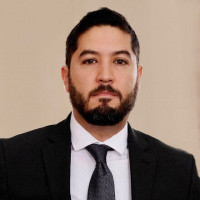 Panna Maria RICO Act Lawyers, Texas
Panna Maria RICO Act Lawyers, Texas
Sponsored Law Firm
-
 x
x

Click For More Info:
-
Law Office of Robert R. Jones III
2411 Emancipation Ave, Suite 202, Houston, TX 77004» view mapCriminal Defense Expert Representation for Reasonable Rates
If you need representation, call me 24/7.
800-883-8760
Not enough matches for Panna Maria RICO Act lawyer.
Below are all Panna Maria Criminal lawyers.
Sponsored Lawyers
1-6 of 6 matches
Criminal, DUI-DWI
Christopher D. Cavazos is a knowledgeable Criminal Law and DWI attorney who has more than 15 years of experience. Mr. Cavazos previously worked as a criminal prosecutor in the state of Texas, where he familiarized himself with both sides of the legal process. Attorney Cavazos is a founding partner of BRCK Criminal Defense Attorneys with offices located in Floresville, Jourdanton, and Karnes City. Attorney Cavazos is an Executive Member of the Atascosa Bar Association and was previously named one of the Top Criminal Defense Lawyers in San Antonio. Throughout his career, Mr. Cavazos has shared his vast legal knowledge with local communities and law students. Chris graduated in 2003 from the University of Texas at Austin with his Bachelor of Arts in Government. Following his undergraduate degree, Chris went on to receive his Juris Doctorate from St. Mary’s School of Law in 2005. To schedule a free consultation, contact Attorney Cavazos by calling 847-749-4182
(more)


 Robert Jones San Antonio, TX
Robert Jones San Antonio, TX AboutLaw Office of Robert R. Jones III
AboutLaw Office of Robert R. Jones III Practice AreasSpecializations
Practice AreasSpecializations

